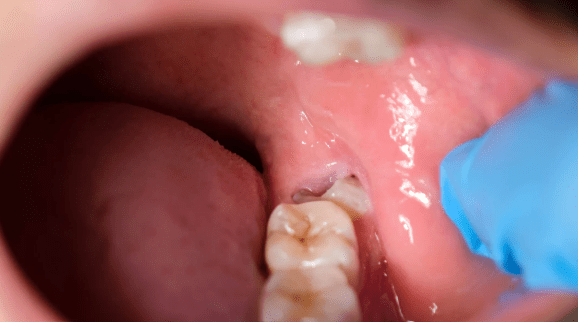Can Wisdom Teeth Cause Cancer? Understanding the Myths and Facts
When it comes to dental health, few topics spark as much curiosity and concern as wisdom teeth. These third molars, which typically appear between the ages of 17 and 25, are infamous for causing discomfort, overcrowding, and infections. But can wisdom teeth cause something as serious as cancer?
Let’s explore the connection between wisdom teeth and cancer, separating myth from medical facts.
What Are Wisdom Teeth?
Wisdom teeth are the last set of molars at the back of your mouth. Many people have them removed because:
- They don’t have enough room to grow properly.
- They become impacted (trapped in the jawbone or gums).
- They cause pain, swelling, or damage to other teeth.
While these issues are common, the suggestion that they can lead to cancer is more complex.
Can Wisdom Teeth Cause Cancer?
There is currently no direct scientific evidence that impacted or infected wisdom teeth cause cancer. However, certain oral health conditions related to wisdom teeth might increase the risk of developing abnormal tissue growth.
Here’s what you need to know:
1. Chronic Inflammation and Cell Changes
If wisdom teeth are left untreated and become chronically infected, they can lead to long-term inflammation in the mouth. Persistent inflammation is known to damage tissues and DNA, which, over time, could potentially increase the risk of cell mutations. Chronic infections in theory could increase the likelihood of oral or jawbone tumors — though this is rare.
2. Cysts and Tumors from Impacted Wisdom Teeth
Sometimes, an impacted wisdom tooth can develop a fluid-filled sac called a dentigerous cyst. While most of these cysts are benign, in rare cases, they can grow large and cause damage to the jawbone or nearby teeth. Very rarely, these cysts can develop into ameloblastomas, a type of tumor that may be locally aggressive.
Although ameloblastomas are not usually cancerous, they can still require surgical treatment. Extremely rare cases may involve transformation into squamous cell carcinoma or other malignancies, but these are exceptions rather than the rule.
3. Oral Cancer Awareness
While wisdom teeth themselves aren’t cancerous, neglecting oral health can mask the symptoms of real oral cancers, such as:
- White or red patches in the mouth
- Persistent sores or ulcers
- Jaw stiffness or pain
- Unusual lumps
It’s important to have regular dental checkups to ensure any abnormalities are caught early.
The Bottom Line
👉 Wisdom teeth do not directly cause cancer.
However, neglecting infections or cysts associated with impacted wisdom teeth could contribute to rare complications that warrant medical attention. Maintaining oral hygiene and seeing your dentist regularly is the best way to stay ahead of potential issues.
If you’re experiencing chronic pain, swelling, or discomfort due to your wisdom teeth, consult a dental professional for advice. Early action is key — not just for comfort, but for your long-term health.
Quick Tips for Wisdom Tooth Care:
- Don’t ignore recurring pain or swelling in the back of your mouth.
- Maintain good oral hygiene, especially around hard-to-reach molars.
- Get routine dental X-rays to monitor tooth and jaw development.
- Follow your dentist’s advice on wisdom tooth removal if needed.
Remember: Your mouth is a window to your overall health. Keeping it healthy means you’re also protecting yourself from bigger problems down the road.


